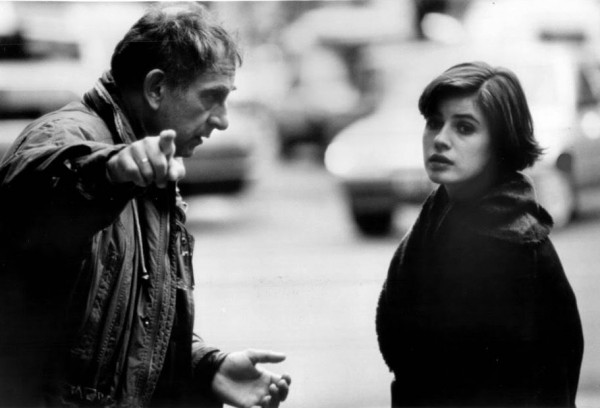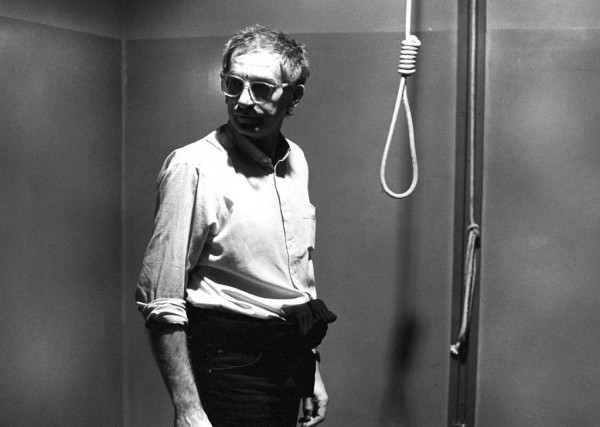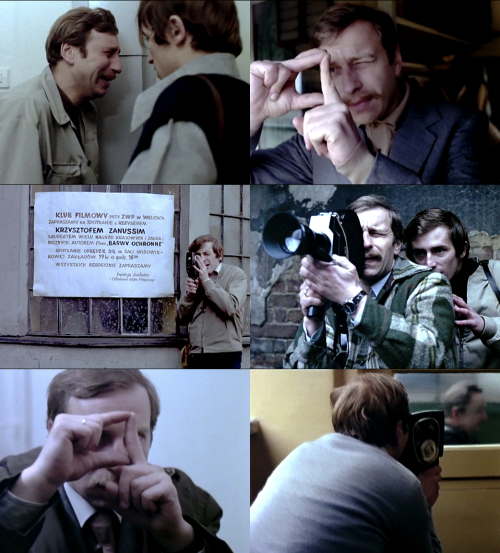Krzysztof Kieslowski – His Life & His Search for Mysterious Connections
Krzysztof Kieslowski
(27 June 1941 – 13 March 1996)
There are mysteries, secret zones in each individual.-
Different people in different parts of the world can be thinking the same thoughts at the same time. It’s an obsession of mine, that different people, in different places, are thinking the same thing, but for different reasons. I try to make films which connect people.
At one point he was filming Three Colors: White (1994) while editing Three Colors: Blue (1993) and writing Three Colors: Red (1994).
A short film about killing ..
“In Poland, this film was instrumental in the abolition of the death penalty.”
Master class interview (youtube)
See film stills Doublie life of Veronique
Kieslowski tells his own biography through Camera Buff. Both in approach and subject matter, Filip’s early films mirror Kieslowski’s own first documentaries.
One of his favorite films was Ken Loach’s Kes.
[on Ingmar Bergman]: I can identify with what Bergman says about life, about what he says about love. I identify more or less with his attitude towards the world… towards men and women and what we do in everyday life… forgetting about what is most important.
His signature work, “Talking Heads” (1980), consisted of a string of short interviews with people answering two unvarying questions: “Who are you?” and “What do you want in life?” As we progressed from a newborn to a woman 100 years of age, birth years of the interviewees flashed on the screen as a sort of cosmic countdown. By the end of the film, as the subsequent faces bore ever-deeper signs of aging and the expressed concerns shifted from the mundane to the eternal, the film revealed itself as a single story of hope, work, failure, compromise and rebirth.
(via wiki)
In an interview given at Oxford University, Kieślowski said the following:
It comes from a deep-rooted conviction that if there is anything worthwhile doing for the sake of culture, then it is touching on subject matters and situations which link people, and not those that divide people. There are too many things in the world which divide people, such as religion, politics, history, and nationalism. If culture is capable of anything, then it is finding that which unites us all. And there are so many things which unite people. It doesn’t matter who you are or who I am, if your tooth aches or mine, it’s still the same pain. Feelings are what link people together, because the word ‘love’ has the same meaning for everybody. Or ‘fear’, or ‘suffering’. We all fear the same way and the same things. And we all love in the same way. That’s why I tell about these things, because in all other things I immediately find division.[12]
In the foreword to Decalogue: The Ten Commandments,[13] Stanley Kubrick wrote:
I am always reluctant to single out some particular feature of the work of a major filmmaker because it tends inevitably to simplify and reduce the work. But in this book of screenplays by Krzysztof Kieślowski and his co-author, Krzysztof Piesiewicz, it should not be out of place to observe that they have the very rare ability to dramatize their ideas rather than just talking about them. By making their points through the dramatic action of the story they gain the added power of allowing the audience to discover what’s really going on rather than being told. They do this with such dazzling skill, you never see the ideas coming and don’t realize until much later how profoundly they have reached your heart.
Stanley Kubrick January 1991[14]


